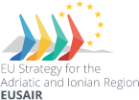An innovative model of the beehive business hub in Slovenia presented for the very first time on the example of the municipality of Izola
Press release - Izola, 14 October 2021
Izola based Art kino Odeon hosted the presentation of the new generation business zone model, the so called beehive business hub.
It was developed by Petja Oplotnik, Eva Lipnik, Živa Bele and Aleks Tepič, students of the international program Management and Organization of the Faculty of Economics, University of Ljubljana, in cooperation with JZP Izola, under the mentorship of Polona Domadenik.
This extremely innovative design represents a way to upgrade of existing business zones, such as, for example, technology parks, industrial or craft zones, taking into account the specifics and potential of the local environment as much as possible. The Business model can be exported, not only in other slovenian municipalities, but also in other countries of EUSAIR!
This opportunity will be presented also as the activity of fostering innovative projects within the Facility Point project co-financed by Interreg ADRION programme.
Many guests, representatives of chambers of commerce and industry, business associations, incubators, successful entrepreneurs and other interested public were greeted by the Mayor of Izola Danilo Markočič and expressed satisfaction that the new model of the business hub is shown in a potential case of Izola city. The latter namely strives to increase the added value per employee in the municipality and at the same time makes great efforts to attract investors.
Additional reasons for the approach to the project and synergies or cooperation of the involved companies and other stakeholders in the region (local environment, university, institutes) were discussed by Iztok Škerlič from the Public Institute for Developing Projects of the Municipality of Izola and Deputy Mayor Aleksej Skok.
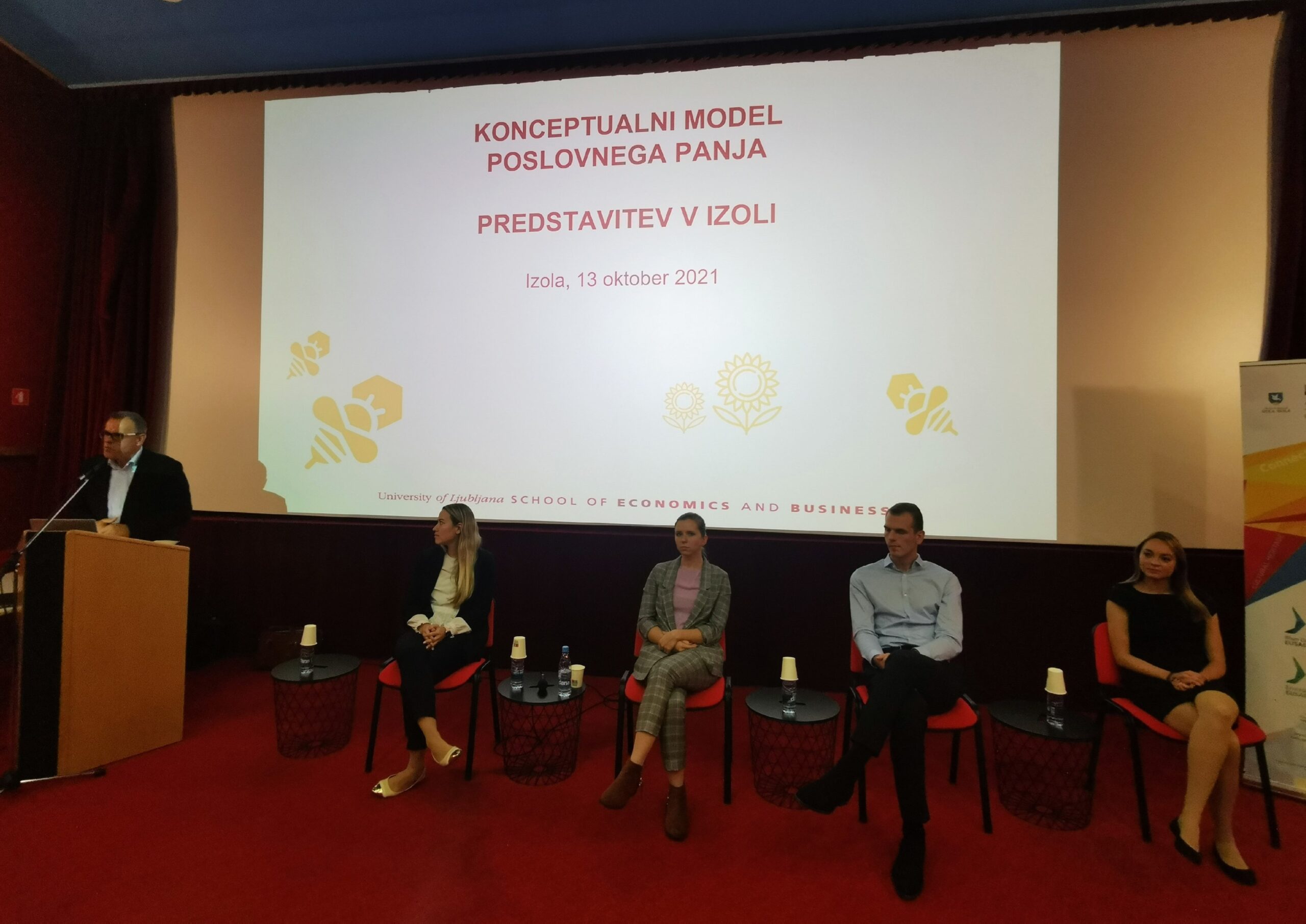
After a short introduction, the students presented in detail the design of the beehive business hub – an ecosystem of a well-organized group of companies that, through cooperation, achieve mutual benefits. At the same time, the central company plays a key role in development and growth. In the case of beehive business hub, these are established companies from a certain industry, which are either horizontally or vertically connected to other companies operating within the hub. A detailed analysis of students lead to identifying a Dinit Card Services company as a potential central business entity in Izola, which with 90 employees offers advanced services in the field of cards and payments processing.
Students provided detailed arguments for the project and its location in Izola (uneven development of regions, relocation to larger cities, lower added value per employee, slower growth of the SMEs). Particular economic challenges at national, regional and local levels were discussed as well. They defined objectives, which include: helping the SMEs, enabling the development of high value-added industries and productivity in the region and integrating other benefits for all stakeholders. Very specifically, the selected methodology was used to analyse the existing or classic business zones in Slovenia. Based on these analyses, taking into account the specifics and challenges of the municipality of Izola, presented a business hive model with all potential stakeholders (universities and institutes, multi-level employees, owners, managers, local community, state, investors).
In doing so, audience listened with interest to the opportunities offered in the analysis and, in an extremely interesting discussion at the end, also recognized them as those that can secure Izola many new jobs with high added value in the long run and have other, especially financial impacts on different industries. It is great that the students researched in detail the innovative and successful solutions for the development of business ecosystems abroad, and also envisaged different types of financing (private, public, combined and with EU funds).
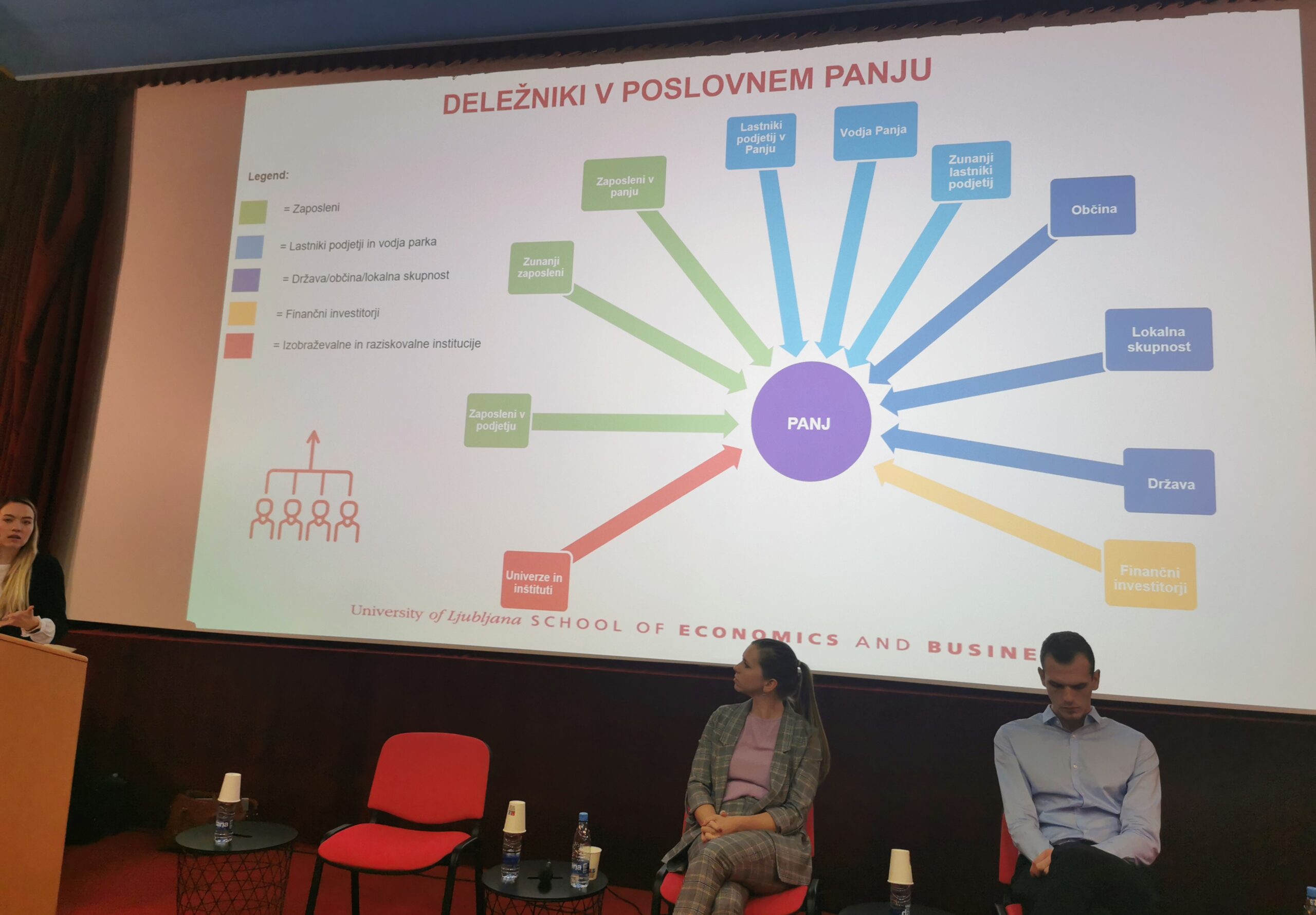
You might be interested in
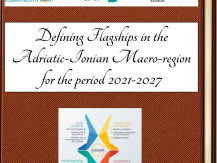
EUSAIR flagships all summed up!
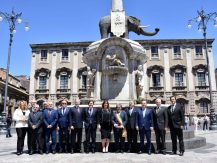
3rd EUSAIR Annual Forum – CATANIA DECLARATION

The Hellenic Republic assumes the Presidency of the EU Strategy for the Adriatic and Ionian Region (EUSAIR) (1 June 2024 – 31 May 2025)




